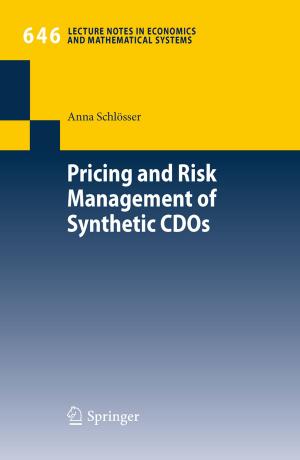Effect-Directed Analysis of Complex Environmental Contamination
Nonfiction, Science & Nature, Science, Earth Sciences, Biological Sciences, Environmental Science, Nature| Author: | ISBN: | 9783642183843 | |
| Publisher: | Springer Berlin Heidelberg | Publication: | April 15, 2011 |
| Imprint: | Springer | Language: | English |
| Author: | |
| ISBN: | 9783642183843 |
| Publisher: | Springer Berlin Heidelberg |
| Publication: | April 15, 2011 |
| Imprint: | Springer |
| Language: | English |
Today more than 5 million chemicals are known and roughly 100,000 of them are frequently used, with both numbers rising. Many of these chemicals are ultimately released into the environment and may cause adverse effects to ecosystems and human health. Effect-directed analysis (EDA) is a promising tool for identifying predominant toxicants in complex, mostly environmental mixtures combining effect testing, fractionation and chemical analysis. In the present book leading experts in the field provide an overview of relevant approaches and tools used in EDA. This includes diagnostic biological tools, separation techniques and advanced analytical and computer tools for toxicant identification and structure elucidation. Examples of the successful application of EDA are discussed such as the identification of mutagens in airborne particles and sediments, of endocrine disruptors in aquatic ecosystems and of major toxicants in pulp and paper mill effluents. This book is a valuable, comprehensive and interdisciplinary source of information for environmental scientists and environmental agencies dealing with the analysis, monitoring and assessment of environmental contamination.
Today more than 5 million chemicals are known and roughly 100,000 of them are frequently used, with both numbers rising. Many of these chemicals are ultimately released into the environment and may cause adverse effects to ecosystems and human health. Effect-directed analysis (EDA) is a promising tool for identifying predominant toxicants in complex, mostly environmental mixtures combining effect testing, fractionation and chemical analysis. In the present book leading experts in the field provide an overview of relevant approaches and tools used in EDA. This includes diagnostic biological tools, separation techniques and advanced analytical and computer tools for toxicant identification and structure elucidation. Examples of the successful application of EDA are discussed such as the identification of mutagens in airborne particles and sediments, of endocrine disruptors in aquatic ecosystems and of major toxicants in pulp and paper mill effluents. This book is a valuable, comprehensive and interdisciplinary source of information for environmental scientists and environmental agencies dealing with the analysis, monitoring and assessment of environmental contamination.















